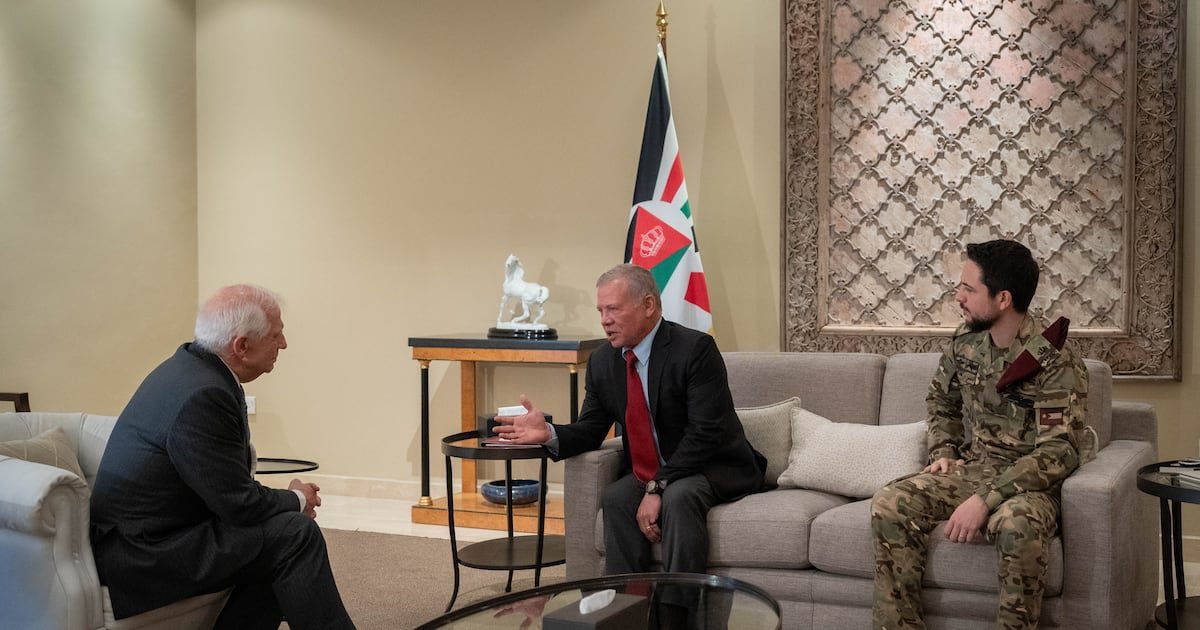Live updates: Follow the latest on Israel-Gaza
Neither side in the Gaza war can achieve “total victory”, EU foreign policy chief Josep Borrell has said, cautioning against framing the conflict in religious terms.
In a speech at Jordan University late on Wednesday in Amman, Mr Borrell recounted personal incidents in an appeal to both sides to stop “dehumanising” each other and seek peace based on “equal dignity”.
In a little more than a week, Mr Borrell will be replaced by former Estonian prime minister Kaja Kallas. But he is using his final appearances in the region to make a moral case for peace. In Cyprus on Saturday, he will address Israeli and Palestinian civil figures, before travelling to Lebanon.
“There is a narrative trying to present the problem as a fight between the West and the East or against the South, or against the Muslim world. This is a caricature that has to be deconstructed and rejected. We have to avoid any kind of clashes based on religion, civilisation or ethnicity,” he said.
The war started on October 7 last year when a surprise attack on southern Israel by Hamas and other militant groups supported by Iran killed about 1,200 civilians. Palestinian health officials in Gaza say that 44,000 people have been killed in the subsequent invasion of Gaza.
“Do not listen to the ones who claim for total victory. The victory is never total. Let’s talk about inclusion,” he said. “Any message of hate,” whether from “an Israeli minister as much as if it comes from the voice of an extremist from any field” must be rejected.
He recalled his own’s father’s experience as a participant in the 1936 to 1939 Spanish Civil war. At least half a million people were killed in the conflict, which was followed by the dictatorship of General Francisco Franco.
“Do not play games of war,” Mr Borrell quoted his father as telling him. “He knew by his own experience how awful war could be.”
As a young university graduate in the late 1960s, Mr Borrell worked as a volunteer in a Kibbutz “not because I was supporting Zionism, but because the Kibbutz represented for the young people … in Europe, the ideal of socialism. The ideal of living together, and sharing everything.”
But he repeated criticism he has incessantly levelled against Israel’s war conduct in Gaza as disproportionate, unjustifiable and contravening international law.
“There is a limit to the right of defence, and the level of destruction that we are witnessing in Gaza is not justified with the right to defence,” Mr Borrell said, calling for respect of UN principles that “push back against any kind of dehumanisation”.
